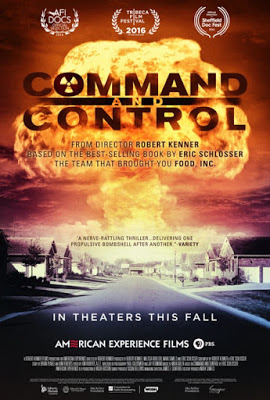Command and Control
Human error nearly results in the accidental detonation of a nuclear warhead in Command and Control. On September 18, 1980, a maintenance crew working on the Titan-II missile, at Little Rock Air Force Base’s Launch Complex 374-7 in Damascus, Arkansas, accidentally drops a socket, which ends up piercing the missile’s fuel tank. Fuel begins leaking into the missile silo and the clock begins to tick before a possible nuclear explosion three times the strength of all the bombs dropped during World War II combined.
Based on the book of the same name by Eric Schlosser (Fast Food Nation) and directed by Academy Award-nominated filmmaker Robert Kenner (Food, Inc), Command and Control is the ultimate cautionary tale when it comes to the instability of the world’s nuclear arsenal. Recently declassified documents have revealed that the 1980 Damascus incident was only one of multiple instances over the years, where a nuclear warhead almost accidentally detonated on American soil. While the safety features on these warheads can be credited with why there have been no explosions up until now, it can also be attributed to plain and simple luck, which one day may run out.
Command and Control focuses primarily on Damascus, while also touching upon other close calls to happen during the nuclear age. However, Damascus was undoubtedly the closest call of them all, especially since the warhead on the Titan-II missile was way more powerful than the atom bomb dropped during World War II, with both the explosion and nuclear fallout being absolutely devastating. Featuring interviews with those involved, supported by archival footage and re-enactments, the events of the Damascus incident are told of beginning to end, with the story being structured like a real life, edge on your seat thriller. The film also touches upon the mild cover-up that happened at the time, with military officials refusing to comment on the presence of a nuclear warhead, and how many of those involved ended up being reprimanded by their superiors, despite it being a scenario that nobody could have predicted.
While the Cold War may be long over, there are still thousands of nuclear weapon stockpiles in the world today. All it would take is for one thing to go wrong for there to be be an accident of devastating proportions. As stated in Command and Control, the question is not if a nuclear weapon will accidentally go off, but when. While I am sure Eric Schlosser’s book goes into a whole lot more detail on this issue, Command and Control is still a quite scary cautionary tale about how nuclear weapons probably aren’t as safe as they are made out to be.
 LIKED IT
LIKED IT
Now Playing



